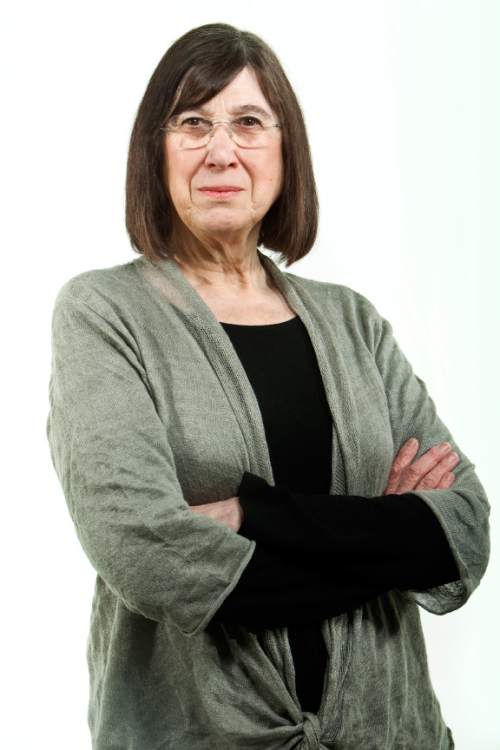This is an archived article that was published on sltrib.com in 2015, and information in the article may be outdated. It is provided only for personal research purposes and may not be reprinted.
Part One of Two
Born in February 1901 in Ribnitz, eastern Germany, Max Lichenheim was 7 years old when his father, a collector, gave him a cigar box filled with stamps. Two years later, the youngster had more than 1,000 stamps from around the world. Little did he know that, by 1939, those stamps would save his family's life in their flight from Nazi Germany
Lichenheim was devoted to the study of philately and investment, and eventually inherited his father's extensive collection. He also studied law at universities in Hamburg and Cologne. At the University of Rostock, he earned the title of Doctor of Law and in 1932 passed his bar examination.
While in school, Lichenheim met his beloved, Margaret Lindenberg. Six years younger, Margaret worked at a nearby firm. Knowing the way to his heart, she cut out every foreign stamp that crossed her desk.
On Jan. 27, 1933, the couple married and moved to the resort town of Brunshaupten. Built along the Baltic Sea coast, the idyllic destination was famous for its beaches, "spa town" architecture, extended promenade and marina. There the attorney-at-law opened his practice and the newlyweds envisioned a full and happy life. That soon changed.
By Jan. 30, Adolf Hitler became chancellor and head of the German government. On March 10, the Nazi Schutzstaffel, or SS, established Germany's first concentration camp at Dachau. In April, Jewish-owned stores were boycotted. Jewish doctors, lawyers, and civil servants were forbidden to practice. Quotas were placed on "students of foreign race," including German Jews who had been part of the country's populace for more than 1,000 years.
Max's law sign was destroyed and he was forced to close his practice. Facing an uncertain future, they returned to Rostock, opened a small tobacco shop to make ends meet and lived in constant fear. In November 1938, their lives were threatened.
During the two-day pogrom called Kristallnacht — or "Night of Glass," a state-sanctioned, violent attack against Jewish communities in Germany — Nazi storm troopers ransacked thousands of Jewish-owned businesses and homes. They set fire to synagogues, killed scores of Jews and arrested and deported some 30,000 people to concentration camps.
"My husband was outside looking at the devastation," Margaret recalled in family papers. "They picked him up right there and took him into Schutzhaft at Altstrelitz."
Loosely defined as "protective custody," schutzhaft needed no due process. Many incarcerated Jews were then sent to the Dachau or Buchenwald concentration camps.
"It was more than terrifying," she said. "Neighbors to the left had disappeared. Neighbors to the right were gone."
Max was fortunate. Imprisoned for nearly four months, he was permitted to write letters and Margaret was allowed to visit him once.
When an aunt in Berlin bought Max a ticket to Shanghai — which at the time had "no emigration authorities and could be easily entered" — Margaret showed the ticket to the Gestapo and Max was released. Selling some rare stamps to a friend, "a serious collector and Nazi," he was able to book passage for Margaret.
"We packed under the eyes of the Gestapo," Margaret remembered. "They tore open feather beds, took a knife to the furniture, stomped on my typewriter, and smashed all the glass."
Allowed to take only 10 marks, the Licheheims rode by train to Italy on April 18. At the border, they and their belongings were searched. Items were confiscated. Margaret's diamond rings survived hidden inside a cotton potholder.
"They would've killed [us] if they found them," she said.
Max's valuable foreign stamp collection, reported as "valueless" by the Nazi connoisseur and friend, was sanctioned to leave Germany with him.
After spending a restless night in a cheap room at the harbor, the following morning they joined some 700 other Jewish refugees onboard the luxury Italian liner, Guilio Cesare. Called the "refugee ship of the East," they sailed to Shanghai, a 25-day voyage. Free from Nazi tyranny, the Lichenheims knew not what lay ahead, including a life in Utah.
Eileen Hallet Stone, author of "Hidden History of Utah," a compilation of her Living History columns in the Salt Lake Tribune, may be reached at ehswriter@aol.com. Additional Sources: Heidi Olsen's "Escape to Shanghai." Special thanks to Bill Vogel.



